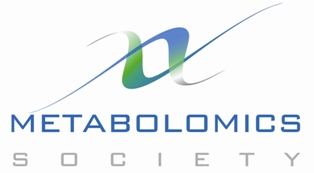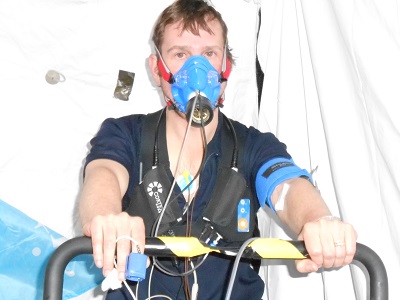
TMIC and the Metabolomics Society
Issue 73 - September 2017
CONTENTS:
Online version of this newsletter:
http://www.metabonews.ca/Sep2017/MetaboNews_Sep2017.htm

 |
| Published
in partnership between TMIC and the Metabolomics Society Issue 73 - September 2017 |
|
CONTENTS: |
|
|
 |
| TMIC
Services |
 |
Metabolomics Society News |
| |
MetaboInterview
|
| President, Metabolomics
Society, and Lecturer,
Department of Biochemistry, University of
Cambridge (UK) |
|
 |
Biography Dr. Griffin studied chemistry at Magdalen College, Oxford, and went on to do postgraduate research in biochemistry, gaining his DPhil from Oxford in 1999 after studying in the laboratory of Professor George Radda. Following this he held Postdoctoral posts as a Harvard and Massachusetts General Hospital Fellow in Radiology, as a research associate at Imperial College London, and, later, as a Royal Society University Research Fellow at the Department of Biochemistry, University of Cambridge (UK). He was formally appointed as a University Lecturer (the US equivalent to an associate professor) at Cambridge University in 2007. Dr. Griffin's group uses a range of analytical techniques including NMR spectroscopy and mass spectrometry (they have access to a 500 MHz NMR spectrometer, a Thermo LTQ ion trap, a Waters QTOF Ultima, a Waters Quattro Premiere triple quadrupole LCMS, and two GC-MS), to follow metabolism in the brain to look at a range of disease processes. The majority of his work has centered on mouse models of disease including Alzheimer's disease, Parkinson's disease, and the neuronal ceroid lipofuscinoses. More recently, Dr. Griffin's group has been using a combination of animal models (mouse, rat, and C.elegans) to understand the metabolic consequences of "metabolic syndrome" including type II diabetes, obesity, fatty liver disease, and dyslipidaemia. His studies have attempted to cross-correlate metabolomic data with proteomics and transcriptomics to create a "systems biology" description of the consequences of pathology and genetic modulation related to the metabolic syndrome. |

 |
Metabolomics Current Contents
|
 |
MetaboNews |
| 8 Aug 2017 |
NIH
Common Fund Metabolomics
Program Funding Opportunity
Announcements
The NIH Common Fund Metabolomics Program recently issued four new Funding Opportunity Announcements (FOAs) for the program’s second stage of funding. These funding opportunities will focus on the following topics:
|
Metabolomics Events
|
| 11-15 Sep 2017 |
School on "Cloud-based Metabolomics Data Analysis and Collaboration" Venue: Building 2 of the Technology Park of Sardinia Pula, Sardinia, Italy We are happy to announce that registrations are now open; visit http://cloudmet2017.crs4.it/ to register now. Metabolomics is a well established -omics science whose growth is bringing about new challenges. Systematic studies and integration with other data sources are resulting in ever larger dataset sizes; production applications require superior computational scalability of analysis techniques; complex, multi-step workflows make study reproducibility more challenging. At the same time, cloud computing technologies are extending their functionality and provide practical solutions for many of these problems. In this School students will have the opportunity to learn about current topics in metabolomics, with a slant on the integration of cloud computing technologies where they are beneficial to the effectiveness and efficiency of research and analysis work. Top-level lecturers in the field will provide their insight and will be available for the entire duration of the school, with ample opportunity for interaction with the students. Importantly, the School will also include practical sessions where students can put their new knowledge into practice under the guidance of tutors and run analyses using the new PhenoMeNal cloud-based metabolomics platform. To register and for more information, visit http://cloudmet2017.crs4.it/. |
| 20-23 Sep
2017 |
MOVISS: Bio and Data Venue: Vorau, Austria A problem driven meeting aimed at bioinformaticians, biochemists, statisticians and those who handle and interpret metabolomics data When: Sept 20-23, 2017 Where: Vorau, Austria To register and for more information, go to www.MOVISS.eu, and follow us on Twitter @MOVISSmeet Not just an ordinary conference, where people present work they have already done, MOVISS is centered on identifying and problem solving current challenges relating to metabolomics data handling by getting everyone in the room discussing it. Want to be at the forefront of solving some of the major bottlenecks in the Metabolomics Revolution – see you at MOVISS! A follow up R Summer School will be held on September 25-27, 2017 in Vorau, Austria. |
| 25-27 Sep 2017 |
Joint OpenMS and MetFrag User Meeting Venue: Martin-Luther University, Halle, Germany Speakers include:
|
| 2 Oct 2017 |
Metabolomics: Understanding Metabolism in the 21st Century FREE online course Metabolomics is an emerging field that aims to measure the complement of metabolites (the intermediates and products of metabolism) in living organisms. In this course, we provide an introduction to metabolomics and describe the current challenges in analysing the complement of metabolites in a biological system. The course is targeted towards final year undergraduate students from biology / chemical disciplines and medical students, but will also provide a valuable introduction to the metabolomics field for MSc and PhD students, and scientists at any stage in their careers. Register at: https://www.futurelearn.com/courses/metabolomics or email: bmtc@contacts.bham.ac.uk for more information. |
| 12-13 Oct 2017 |
Quality Assurance and Quality Control in Metabolomics Venue: Birmingham Metabolomics Training Centre, School of Biosciences, University of Birmingham, Birmingham, UK This two-day course will provide a comprehensive overview of the application of quality assurance (QA) and quality control (QC) in metabolic phenotyping. The course is aimed at students and researchers who are actively working in the field. Experts who have developed the application of QA and QC procedures within the field will lead the course. It will include both theoretical and practical components to:
Bursaries are now available for PhD students funded by the BBSRC, MRC, or NERC. For further information and registration details, please visit http://www.birmingham.ac.uk/facilities/metabolomics-training-centre/courses/quality-phenotyping.aspx or contact bmtc@contacts.bham.ac.uk. |
| 12-13 Oct 2017 |
Mayo Clinic Metabolomics Symposium Venue: Leighton Auditorium, Siebens Building, Mayo Clinic, Rochester, Minnesota, USA Register today for the Mayo Clinic Metabolomics Symposium October 12-13, 2017 – Siebens Building, Leighton Auditorium, Rochester, Minnesota. Featured speakers include Mayo Clinic experts and:
Registration links: Mayo Clinic Metabolomics Symposium *You will be required to create a profile. Speakers and vendors do not need to register. Mayo Clinic Optional Focused 4-hour Workshop Friday, afternoon, October 13 (limited availability, not open to Mayo Clinic Employees) Cost: $50 Course Registration – Mayo Clinic Employee $150 Course Registration – Scholar/Junior Faculty $275 Course Registration - Standard $100 Optional Hands-on – Limited Attendee Workshop Attendees are invited to display posters at the conference reception on Thursday evening. Awards for excellence will be given to first place ($300), second place ($200) and third place ($100). Vendor opportunities are available and will be displayed during the entire workshop as well. Please contact Jacquelyn Gosse for vendor information. Mayo Clinic is one of six federally funded Regional Comprehensive Metabolomics Resource Cores (RCMRC) to support medical research using metabolomics - the comprehensive and quantitative analysis of molecules (metabolites) that define the metabolic signatures of living systems. This symposium was made possible through grant number U24DK100469 from the National Institute of Diabetes and Digestive and Kidney Diseases and originates from the National Institutes of Health Director’s Common Fund. For more information, contact Jacquelyn Gosse. |
| 18-20 Oct 2017 |
Workshop in Environmental Omics, Integration and Modelling Venue: CosmoCaixa, Barcelona, Spain The aim of this workshop is to review the state-of-the-art and broaden the knowledge on high-throughput analytical methods, data integration and modelling in Environmental Omics and Toxicology. The main workshop topics will be the following:
For more information, please visit http://wenvomics2017.info/. |
| 6-8 Nov 2017 |
Metabolomics with the Q Exactive Venue: Birmingham Metabolomics Training Centre, School of Biosciences, University of Birmingham, Birmingham, UK This three-day course will introduce you to using the Q Exactive mass spectrometer in your metabolomics investigations. The course is aimed at students and researchers with minimal previous experience of applying LC-MS in metabolomics. The course will be led by experts in the field and include lectures, laboratory sessions and computer workshops to provide:
Bursaries are now available for PhD students funded by the BBSRC, MRC, or NERC. For further information and registration details, please visit http://www.birmingham.ac.uk/facilities/metabolomics-training-centre/courses/q-exactive.aspx or contact bmtc@contacts.bham.ac.uk. |
| 7-10 Nov 2017 |
Hands on Data Analysis for Metabolic Profiling Venue: Imperial International Phenome Training Centre, Imperial College London, UK Earlybird: £900 Standard: £1100 This 4 day course provides a comprehensive overview of data analysis for metabolic profiling studies with data acquired from NMR spectroscopy and Liquid Chromatography-Mass Spectrometry. It combines lectures and tutorial sessions to ensure a thorough understanding of the theory and practical applications. Day 1: Introductory lectures and tutorials regarding the pre-processing of data acquired via NMR and LC-MS. Day 2: Lectures and tutorials introducing exploratory chemometrics approaches, including PCA. Day 3: Lectures and tutorials covering advanced chemometrics techniques including PLS and Orthogonal PLS. Day 4: The next step - computational tools to aid metabolite identification and pathway analysis. For more information, visit http://www.imperial.ac.uk/imperial-international-phenome-training-centre/courses/hands-on-data-analysis-for-metabolic-profiling/. |
| 13-17 Nov 2017 |
Hands-on LC-MS for Metabolic Profiling Venue: Imperial International Phenome Training Centre, Imperial College London, UK Earlybird: £1750 Standard: £1950 This week long course covers how to perform a metabolic profiling experiment from start to finish. It will cover study design, sample preparation, the use of mass spectrometry for global profiling, targeted methodologies and data analysis. Day 1: Introductory lectures in mass spectrometry and chromatography, study design and sample preparation, followed by preparation of biological samples for analysis on subsequent days. Days 2 and 3: Analysis of biofluids through global profiling and targeted analyses; an introductory session to liquid chromatography, followed by sessions on each of the newest QToF and TQ instrumentation. Instrument set up, method development and acquisition will be covered. We have set a maximum of 3 attendees per instrument allowing for hands-on participation by all. Day 3 finishes with introduction to data analysis. Day 4: Data analysis workshops where attendees will process the data acquired from the previous days, mixed with further statistics lectures, allowing for development of interpretation skills. Day 5: Application lectures, tips, tricks and troubleshooting, optional trip to the MRC-NIHR National Phenome Centre. For further information, please visit http://www.imperial.ac.uk/imperial-international-phenome-training-centre/courses/hands-on-lc-ms-for-metabolic-profiling/. |
| 20-27 Nov 2017 |
2nd International Electronic Conference of Metabolomics (IECM-2) Venue: Held online Building in the success of the 1st International Electronic Conference of Metabolomics (IECM-1) in 2016, Metabolites (ISSN 2218-1989), a peer-reviewed, scientific journal, edited by MDPI AG, is proud to be the organizer and sponsor of the second International Electronic Conference on Metabolomics. Contributions dealing with any discipline promoting metabolism and metabolomics will be welcomed. The conference will be held online (http://sciforum.net/conference/iecm-2) from 20–27 November 2017, enabling you to present your latest research to the scientific community and to have the opportunity to participate in fruitful exchanges of information with academic and industrial groups from all over the world. It is absolutely free of charge to participate as an author or a visitor; all you need to do is create an account on the home page. After the event, proceedings from the conference (abstracts) will be published in the online open access journal, Proceedings. On behalf of our active scientific committee and dynamic editorial staff, we warmly invite you to join us at the second International Electronic Conference on Metabolomics and we look forward to posting your contribution. Sincerely yours, A/Prof Peter J Meikle Chair of the 2nd International Electronic Conference on Metabolomics Editor-in-Chief of Metabolites (ISSN 2218-1989) NHMRC Senior Research Fellow Program Head, Metabolism Head, Metabolomics Laboratory Baker IDI Heart and Diabetes Institute 75 Commercial Road, Melbourne VIC 3004 E-Mail: peter.meikle@bakeridi.edu.au Website: www.bakeridi.edu.au For further information, please visit http://sciforum.net/conference/iecm-2. |
| 1 Dec 2017 |
Introduction to Metabolomics for the Clinical Scientist Venue: Birmingham Metabolomics Training Centre, School of Biosciences, University of Birmingham, Birmingham, UK This one-day course in partnership with the Phenome Centre Birmingham will provide clinicians with an overview of the metabolomics pipeline, highlighting the benefits of the technique to the medical field. The course will provide an:
For further information and registrations details, please visit http://www.birmingham.ac.uk/facilities/metabolomics-training-centre/courses/introduction-metabolomics.aspx or contact bmtc@contacts.bham.ac.uk. |
| 6-8 Dec 2017 |
Multiple biofluid and tissue types, from sample preparation to analysis strategies for metabolomics Venue: Birmingham Metabolomics Training Centre, School of Biosciences, University of Birmingham, Birmingham, UK This 3-day course will provide a comprehensive overview of dealing with complex biological samples for LC-MS analysis. The course is targeted towards students and researchers who are actively applying metabolomics in their research. The course will be led by experts in the field and include:
For further information and registration details, please visit http://www.birmingham.ac.uk/facilities/metabolomics-training-centre/courses/sample-analysis.aspx or contact bmtc@contacts.bham.ac.uk. |
| 11-13 Dec 2017 |
MetaboMeeting 2017 Venue: University of Birmingham, UK Make plans to attend the 10th successful MetaboMeeting conference. The meeting will bring together research scientists and practitioners from all areas of application and development of metabolic profiling, covering a wide range of experience from early career scientists to experts from throughout the international metabolomics field. MetaboMeeting 2017 continues to highlight the work of its attendees through both oral platform presentation and poster sessions. The deadline for oral presentation abstracts is 15th July 2017. The deadline for poster abstracts is 1st October 2017. For further information, visit http://metabomeeting2017.thempf.org/. |
| 14-15 Dec 2017 |
Metabolite identification with the Q Exactive and LTQ Orbitrap Venue: Birmingham Metabolomics Training Centre, School of Biosciences, University of Birmingham, Birmingham, UK This two-day course will provide a hands-on approach to teach the latest techniques and tools available to perform metabolite identification. We will apply these tools on the Q Exactive and LTQ Orbitrap mass spectrometry family. The course is targeted towards students and researchers who are actively applying metabolomics. The course will be led by experts in the field and include significant hands-on experience using both the Q Exactive and LTQ Orbitrap instruments to perform:
Bursaries are now available for PhD students funded by the BBSRC, MRC, or NERC. For further information and registration details, please visit http://www.birmingham.ac.uk/facilities/metabolomics-training-centre/courses/metabolite-identification.aspx or contact bmtc@contacts.bham.ac.uk. |
| Late 2017 (To be confirmed) |
Metabolic Phenotyping in Disease Diagnosis and Personalised Health Care Venue: Imperial International Phenome Training Centre, Imperial College London, UK Students: £500 Academic: £800 Industry: £1150 A lecture based course detailing an overview of metabolic phenotyping including the use of NMR spectroscopy and Mass Spectrometry, with insights from the experts at Imperial College and collaborators from all over the world. Lectures will cover data acquisition and analysis with some advanced statistical workshops for more hands-on participation for attendees. There will also be examples of real life applications from the research at Imperial College and their collaborators. Day 1: Registration followed by session 1 which will cover an analytical technology (either NMR or MS) for metabolic profiling. A laboratory tour of the facilities will follow. Day 2: Session 2 will cover the alternative analytical technique (NMR / MS) and will be followed by session 3 which will introduce the theory to statistical analysis. Day 3: Session 4 covers more advanced chemometrics, such as OPLS and O2PLS and includes hands-on workshops. Session 5 will introduce metabolite identification in both NMR and MS and cover some tips and tricks to avoid common pitfalls. Day 4: The final day will cover some of the real life applications of NMR and MS for metabolic phenotyping. For further information, please visit http://www.imperial.ac.uk/imperial-international-phenome-training-centre/courses/metabolic-phenotyping-in-disease-diagnosis-and-personalised-health-care/. |
Metabolomics Jobs |
This is a resource for advertising positions in
metabolomics. If you have a job you would like posted in
this newsletter, please email Ian Forsythe (metabolomics.innovation@gmail.com).
Job postings will be carried for a maximum of four issues
(eight weeks) unless the position is filled prior to that
date.
Jobs Offered
| Job Title | Employer | Location | Posted | Closes | Source |
|---|---|---|---|---|---|
|
Analytical
Scientist (PhD
or Master) for
Mass
Spectrometry-based
Quality
Control
Processes of
Metabolomics
Kits and
Services |
BIOCRATES
Life
Sciences AG |
Innsbruck, Austria | 28-Jul-2017 |
BIOCRATES
Life Sciences AG |
|
| Postdoc Position in Computational Metabolomics | Friedrich Schiller University Jena | Jena, Germany | 4-Jul-2017 | Until filled | Friedrich Schiller University Jena |
| Postdoctoral Fellow / Research Associate in the field of (Bioinformatics / Metabolomics) | McGill University | Montreal, Canada | 25-Jun-2017 | 1-Oct-2017 | McGill University |
|
Ian J. Forsythe Double AB, MSc Editor, MetaboNews Department of
Computing Science
University of Alberta 221 Athabasca Hall Edmonton, AB, T6G 2E8, Canada Email: metabolomics.innovation@gmail.com Website: http://www.metabonews.ca LinkedIn: https://ca.linkedin.com/in/ian-forsythe-465512128 Twitter: http://twitter.com/MetaboNews Google+: https://plus.google.com/118323357793551595134 Facebook: http://www.facebook.com/metabonews |
This newsletter is published in
partnership between The Metabolomics Innovation
Centre (TMIC, http://www.metabolomicscentre.ca/) and the Metabolomics
Society (http://www.metabolomicssociety.org)
for the benefit of the worldwide metabolomics
community.
|